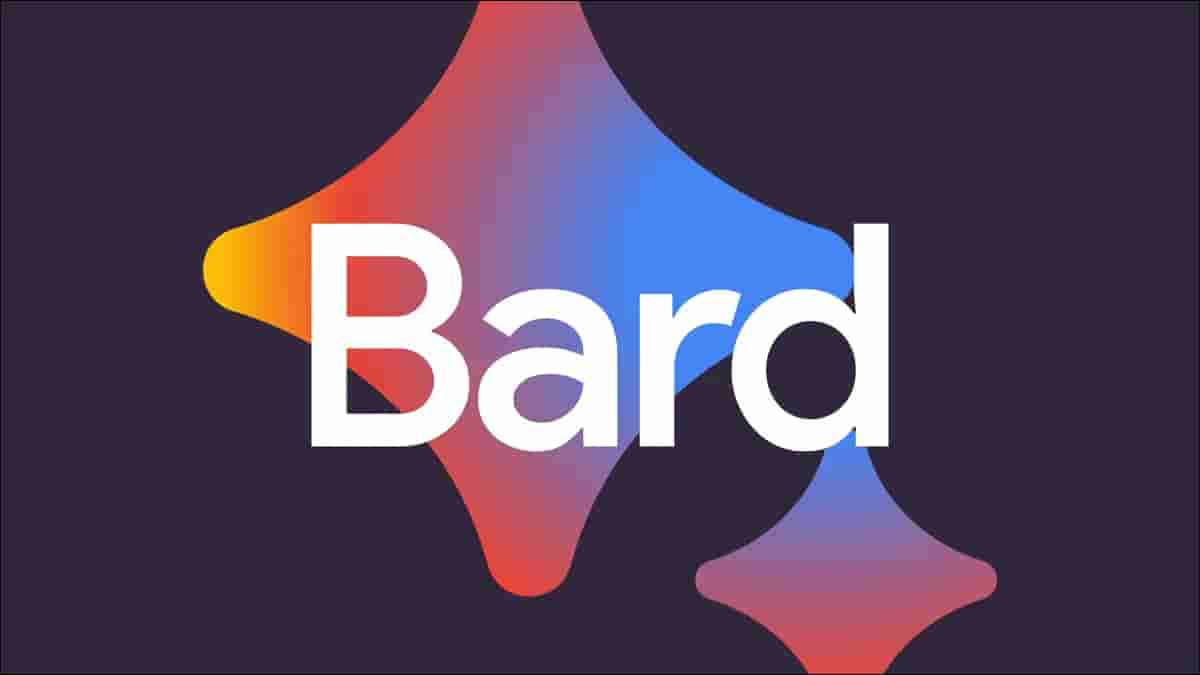
Is that a bird, a plane, no it’s Artificial Intelligence!
AI is now the answer to all problems. Just like Superman it is faster than a speeding bullet and is the only thing standing between humanity and impending doom. Everyone is ranting and raving about artificial intelligence. Recently, an article was written about how AI is more empathetic than a doctor!
So I thought if it was so great, why not have AI write this week's newsletter? This is not because I couldn’t think of anything to write about…
I picked four AI models. ChatGPT, Bard, Perplexity, and HuggingChat. I gave them all the same very simple prompt “Write me a 500 word blog post about how artificial intelligence can be used in healthcare.” Below are their responses. They are not edited in any way
ChatGPT
Artificial intelligence (AI) has revolutionized various industries in recent years, including healthcare. AI has the potential to improve patient outcomes, reduce medical costs, and enhance the efficiency of healthcare delivery. In this blog post, we will discuss some of the ways AI is currently being used in healthcare and how it can transform the healthcare industry in the future.
Medical Imaging:
Medical imaging is a vital tool in diagnosing and treating various diseases. AI can analyze medical images and identify patterns and abnormalities that may not be visible to the human eye. AI-powered imaging technology can detect tumors, bone fractures, and even predict the likelihood of a heart attack or stroke. AI can also help radiologists interpret images more accurately and efficiently, reducing the likelihood of misdiagnosis.
Personalized Treatment:
AI can help doctors develop personalized treatment plans for patients. By analyzing vast amounts of patient data, AI algorithms can identify the most effective treatments for each patient. This approach can improve patient outcomes and reduce medical costs by avoiding unnecessary treatments and procedures.
Disease Diagnosis:
AI can help doctors diagnose diseases more accurately and quickly. By analyzing symptoms and medical records, AI algorithms can identify potential diagnoses and suggest appropriate tests or treatments. This approach can help doctors make more informed decisions and reduce the likelihood of misdiagnosis.
Remote Patient Monitoring:
AI can help healthcare providers remotely monitor patients with chronic conditions. Patients can use wearable devices that collect health data, such as blood pressure, heart rate, and oxygen levels. The data is sent to AI algorithms that can identify potential problems and alert healthcare providers if intervention is necessary. This approach can improve patient outcomes and reduce hospitalization rates.
Drug Discovery:
AI can accelerate the drug discovery process by analyzing vast amounts of data and identifying potential drug candidates. AI algorithms can predict the efficacy and side effects of new drugs, reducing the need for extensive clinical trials. This approach can help bring new drugs to market faster and at lower costs.
Administrative Tasks:
AI can automate administrative tasks in healthcare, such as appointment scheduling, medical billing, and insurance claims processing. This approach can reduce the workload on healthcare staff and improve efficiency, allowing healthcare providers to focus on patient care.
In conclusion, AI has the potential to transform the healthcare industry by improving patient outcomes, reducing medical costs, and enhancing the efficiency of healthcare delivery. While there are some challenges to implementing AI in healthcare, such as privacy concerns and data security, the benefits of using AI in healthcare outweigh the risks. As AI technology continues to advance, we can expect to see even more innovative uses of AI in healthcare in the future.
Perplexity
Artificial intelligence (AI) is transforming every aspect of our lives, and healthcare is no exception. AI has the potential to revolutionize healthcare by improving patient outcomes, reducing costs, and increasing efficiency. In this blog post, we will explore the various applications of AI in healthcare and how they are changing the way we approach healthcare. One of the most significant applications of AI in healthcare is in medical imaging. AI algorithms can analyze medical images such as X-rays, CT scans, and MRIs to detect abnormalities that may be missed by human radiologists. This can lead to earlier detection of diseases such as cancer, which can significantly improve patient outcomes. For example, Merantix, a German company, has developed an application that uses deep learning to detect lymph nodes in CT images. AI has also been applied to congestive heart failure, an illness that afflicts 10 percent of senior citizens and costs $35 billion each year in the US alone 1.
Another area where AI is making a significant impact is in drug discovery. AI algorithms can analyze vast amounts of data to identify potential drug candidates and predict their efficacy. This can significantly reduce the time and cost of drug development, which can take up to 15 years and cost billions of dollars. For example, Insilico Medicine, a Hong Kong-based company, has developed an AI platform that can identify potential drug candidates in just a few months 2.
AI is also being used to improve patient care by providing personalized treatment plans. AI algorithms can analyze patient data such as medical history, genetic information, and lifestyle factors to develop personalized treatment plans that are tailored to the individual patient. This can lead to better patient outcomes and reduced healthcare costs. For example, IBM's Watson for Oncology uses AI to analyze patient data and provide personalized treatment recommendations for cancer patients 2.
Another area where AI is making a significant impact is in administrative tasks such as medical notes and paperwork. AI algorithms can automate these tasks, freeing up doctors and nurses to focus on patient care. For example, Nabla, a French company, has developed an AI platform that can automate medical notes and paperwork, reducing the time doctors spend on administrative tasks 3.
While AI has the potential to revolutionize healthcare, there are also concerns about its impact on patient privacy and safety. AI algorithms can be biased, leading to incorrect diagnoses and treatment recommendations. There is also a risk that patient data could be misused or stolen. To address these concerns, it is essential to develop robust regulations and ethical guidelines for the use of AI in healthcare. In conclusion, AI has the potential to revolutionize healthcare by improving patient outcomes, reducing costs, and increasing efficiency. From medical imaging to drug discovery to personalized treatment plans, AI is changing the way we approach healthcare. While there are concerns about its impact on patient privacy and safety, it is essential to develop robust regulations and ethical guidelines to ensure that AI is used responsibly and ethically in healthcare.
BARD
Artificial intelligence (AI) is rapidly transforming the healthcare industry. From diagnosing diseases to developing new treatments, AI is being used to improve the quality of care and lower costs.
Here are some of the ways that AI is being used in healthcare:
Diagnosis and treatment: AI-powered systems can analyze medical images and data to help doctors diagnose diseases more accurately and quickly. For example, AI systems have been shown to be more accurate than human radiologists at detecting cancer in mammograms. AI is also being used to develop new treatments for diseases, such as personalized cancer therapies.
Drug discovery: AI can be used to screen large libraries of compounds for potential new drugs. This can help to speed up the drug discovery process and identify new treatments for diseases that have no known cure.
Personalized medicine: AI can be used to analyze a patient's individual medical history and genetic data to create a personalized treatment plan. This can help to improve the effectiveness of treatment and reduce side effects.
Healthcare administration: AI can be used to automate tasks such as scheduling appointments, processing insurance claims, and managing patient records. This can free up healthcare professionals to spend more time with patients.
Public health: AI can be used to track the spread of diseases, identify at-risk populations, and develop interventions to improve public health. For example, AI is being used to track the spread of COVID-19 and develop vaccines and treatments.
These are just a few of the ways that AI is being used in healthcare. As AI technology continues to develop, we can expect to see even more innovative applications in the years to come.
Here are some of the benefits of using AI in healthcare:
Improved accuracy and efficiency: AI can help to improve the accuracy of diagnoses and treatments, as well as the efficiency of healthcare processes.
Personalized care: AI can be used to create personalized treatment plans for each patient, which can lead to better outcomes.
Reduced costs: AI can help to reduce healthcare costs by automating tasks and improving efficiency.
Improved patient outcomes: AI can help to improve patient outcomes by providing more accurate diagnoses, more personalized treatments, and reduced wait times.
Here are some of the challenges of using AI in healthcare:
Data privacy: AI systems require large amounts of data to train and operate. This data must be collected and stored securely to protect patient privacy.
Bias: AI systems can be biased, either due to the data they are trained on or the algorithms they use. This bias can lead to unfair or inaccurate results.
Regulation: AI systems are still in their early stages of development, and there is little regulation governing their use in healthcare. This lack of regulation could lead to safety concerns.
Despite these challenges, AI has the potential to revolutionize healthcare. By improving the accuracy and efficiency of diagnoses and treatments, AI can help to improve patient outcomes and reduce costs. As AI technology continues to develop, we can expect to see even more innovative applications in the years to come.
HuggingChat
Artificial Intelligence (AI) has become increasingly prevalent in many industries over recent years, including healthcare. There are several ways that AI can be used to improve patient outcomes while reducing costs for both patients and providers. In this article we’ll discuss some of these applications.
One area where AI has shown promise is by helping physicians make more accurate diagnoses. By analyzing large amounts of data and medical images, AI algorithms can identify patterns and trends that may go unnoticed by human doctors. For example, researchers at Mount Sinai Hospital in New York have developed an AI system that analyzes X-rays for signs of pneumonia, which can then alert clinicians sooner than they would otherwise. Other systems use machine learning techniques to analyze CT scans for lung cancer, often finding tumors earlier than traditional methods alone. By assisting with the diagnostic process, AI can increase accuracy and reduce potential errors.
Another application of AI in healthcare involves using predictive analytics models to identify high risk patients for certain conditions such as sepsis, cardiac disease, and even readmission after discharge from hospital care. These tools take into account historical patient records, demographic data, lab values and other variables to assign scores that rank each patient’s likelihood for developing complications. When coupled with early intervention strategies, these models can drastically reduce harm associated with preventable adverse events. Hospitals implementing these approaches see lower mortality rates, reduced lengths of stay, and decreased expenses related to managing complication incidence.
Health insurers have started leveraging AI technology to streamline claims processing and enhance fraud detection. This results in significant cost savings across multiple domains within the industry without necessarily compromising quality standards. Automating repetitive administrative tasks through intelligent software allows human workers to focus on addressing more complex needs within their roles while maintaining acceptable productivity levels. Furthermore, machine learning algorithms enable the continuous improvement of these processes as more data becomes available for analysis and model updating.
The incorporation of virtual health chatbots in modern primary care settings is yet another innovative application of AI technology in medicine. Patients gain access to round-the-clock support whenever they need answers to questions regarding medications, symptoms management, or lifestyle changes. Since bots utilize natural language processing capabilities, users interact with them similarly to engaging in conversation with another individual. As long as proper safety protocols are established, providing easy access to knowledgeable virtual assistants should empower individuals to prioritize self-directed wellness measures while freeing up health professional time for attending to critical cases requiring immediate attention. Not only might consumers appreciate improved convenience, but overall efficiency gains could drive down health care delivery costs.
In summary, artificial intelligence offers numerous opportunities to optimize healthcare practices and promote better population health outcomes. Continued progress in this domain depends heavily upon collaboration among professionals, policymakers, and technology developers to ensure ethical considerations remain top priorities during development and implementation phases. While there certainly exist challenges pertaining to integration of advanced technologies into existing frameworks, the benefits offered by successful execution far surpass any shortcomings. With appropriate attention dedicated towards harnessing the power of artificial intelligence in medical contexts, society can reap enormous dividends from enhanced health status and reduced economic burdens generated by subpar health care services. Let us work together toward achieving the future that AI promises—one where our collective well-being flourishes.
Conclusion
I will have to admit that I am very impressed. My favorite one is Perplexity. I liked that it provided me with citations and the user experience was great. After it gave me my answers it suggested other questions that I could ask. Which is great for people just starting out. I also really liked what it wrote.
HuggingChat I did have to refresh the answer 3 times to get a long enough blog post. But once I did the results were good.
The most disappointing to me was Bard. It reads very robotic. Ironic statement I know. One interesting thing about Bard though is that it gives you three drafts at once. I picked the default one for this experiment, but it was something that I wanted to mention.
So am I going to replace myself with a robot? No.
As impressive as these outputs were they lack personality and character. What I do think I will start doing is utilize them to generate outlines and ideas. They all did very well with that.
One thing was a consistent theme in all the responses. Not one of them said that AI will replace clinicians.
Thank you so much for your support! Please do not hesitate to reach out if you have any questions or leave a comment.
You can connect with me on LinkedIn and I am trying to be more active on Twitter. Would really appreciate a follow there!
If you enjoyed what you read join 850+ people learning about all things healthtech every week!
I hope you have a great day!











